As someone who has always been passionate about both animals and the environment‚ Ive become increasingly aware of the intricate link between animal agriculture and food security. I decided to delve deeper into this relationship‚ exploring sustainable farming practices firsthand.
My Experience with Sustainable Farming
I was fortunate enough to spend time on a small‚ family-run farm that prioritizes animal welfare and environmental sustainability. I witnessed how they integrated their livestock into a holistic system⁚
- Pasture-Raised Animals⁚ The farm allowed their chickens‚ pigs‚ and cows to graze freely on pasture. This not only provided the animals with a more natural and humane lifestyle but also enriched the soil with natural fertilizers. I helped rotate the grazing areas‚ ensuring the land remained healthy and productive.
- Crop Diversification⁚ Instead of monoculture‚ the farm grew a variety of crops‚ some specifically for animal feed. This reduced the need for external inputs and created a more resilient ecosystem.
- Waste Reduction⁚ I learned how animal manure was composted and used to fertilize the crops‚ creating a closed-loop system that minimized waste and pollution.
This experience opened my eyes to the possibilities of raising animals for food in a way that benefits both people and the planet.
The Challenges of Conventional Animal Agriculture
However‚ my experience also highlighted the stark contrast between sustainable practices and conventional‚ industrial animal agriculture. Factory farming‚ with its focus on maximizing output and minimizing costs‚ often comes at a high cost to⁚
- Animal Welfare⁚ Confined spaces‚ lack of natural light‚ and forced growth rates are detrimental to animal health and well-being.
- The Environment⁚ Intensive livestock production is a major contributor to greenhouse gas emissions‚ deforestation‚ and water pollution.
- Food Security⁚ The vast amount of grain required to feed livestock in intensive systems could be used to directly nourish people‚ particularly in regions facing food shortages.
Finding a Balance for the Future
Achieving global food security requires a multifaceted approach. While I believe reducing meat consumption in some parts of the world is essential‚ I also recognize the importance of animal agriculture‚ particularly in developing countries where livestock can be vital for nutrition and livelihoods.
Here are some steps I believe are crucial⁚
- Supporting Sustainable Farming Practices⁚ We need to shift away from factory farming and encourage practices that prioritize animal welfare‚ environmental stewardship‚ and resource conservation.
- Reducing Food Waste⁚ A significant portion of food is wasted globally. By improving infrastructure and changing consumer habits‚ we can make more food available for both people and animals.
- Investing in Research and Innovation⁚ Exploring alternative protein sources‚ developing climate-resilient crops‚ and improving animal feed efficiency are crucial for a sustainable future.
My Commitment to a Sustainable Future
My journey into the world of animals and food security has been both eye-opening and inspiring. I am committed to supporting a food system that nourishes both people and the planet. By making conscious choices as consumers and advocating for policy changes‚ we can all play a role in creating a more just and sustainable future for all.
Bringing it Home⁚ My Experiments with Sustainable Living
Inspired by my time on the farm‚ I decided to implement some of these sustainable principles in my own life. While I dont have a farm in the traditional sense (city living has its limitations!)‚ I started small⁚
- Reducing My Meat Consumption⁚ I havent completely given up meat‚ but Ive significantly reduced my intake. I now prioritize quality over quantity‚ seeking out meat from local farms that prioritize animal welfare and sustainable practices. I even befriended a local farmer‚ Sarah‚ who raises her chickens on pasture. The difference in taste and quality is incredible!
- Growing My Own Food⁚ I may not have acres of land‚ but I transformed my small balcony into a mini urban farm! I grow herbs‚ tomatoes‚ peppers‚ and even some leafy greens. Its incredibly rewarding to eat food Ive grown myself‚ and its sparked a deeper appreciation for the work that goes into producing our food.
- Composting Food Scraps⁚ I started composting my food scraps‚ turning kitchen waste into nutrient-rich soil for my balcony garden. Its amazing how something that would have ended up in a landfill can be transformed into something beneficial.
These small changes might seem insignificant in the grand scheme of things‚ but theyve made a huge difference in my own life. I feel more connected to my food‚ more aware of the impact of my choices‚ and empowered to be a part of the solution.
Looking Ahead⁚ A Shared Responsibility
My journey into the world of animals and food security is ongoing. Its a complex issue with no easy answers‚ but Im optimistic that by working together‚ we can create a more sustainable and just food system for all. It starts with each of us making conscious choices‚ supporting sustainable practices‚ and advocating for change. The future of our planet‚ and the well-being of both animals and humans‚ depends on it.
One of the most impactful things I did was to visit a local farmers market. Id always enjoyed the hustle and bustle of these markets‚ but this time‚ I went with a mission to really understand where my food came from. I struck up a conversation with a farmer named Tom‚ who specialized in heritage breed chickens. He explained how these breeds‚ unlike their commercially-raised counterparts‚ were better suited to foraging and had a slower‚ more natural growth rate.
Intrigued‚ I decided to buy a whole chicken from Tom. Id never cooked a whole chicken before‚ always opting for pre-portioned cuts. But this felt different. I felt a sense of responsibility to honor this animals life by using every part of it. I spent the afternoon researching recipes‚ eventually settling on a simple roast chicken with herbs from my balcony garden.
The aroma that filled my apartment as the chicken roasted was incredible. But more than that‚ the act of cooking and eating that meal was transformative. It wasnt just dinner; it was a connection to the land‚ to the farmer who raised the animal‚ and to the centuries-old tradition of raising animals for food in a way that respected their natural life cycles.
This experience has stayed with me. Its made me realize that sustainability isnt just about abstract concepts like carbon footprints and resource management. Its about re-establishing our connection to the food we eat‚ the people who produce it‚ and the animals that nourish us. Its about recognizing that our choices have a ripple effect‚ impacting not just our own health‚ but the health of the planet and all its inhabitants.
Im still exploring‚ still learning‚ and still striving to live a more sustainable life. But I know now that even small changes can make a big difference. And thats a pretty empowering feeling.
That trip to the farmers market sparked a chain reaction in my life. I started seeking out other local producers‚ discovering a whole network of people dedicated to sustainable agriculture. I found a small dairy farm run by a woman named Emily‚ who taught me about the importance of rotational grazing for soil health and carbon sequestration. Her cows grazed freely on lush pastures‚ a far cry from the cramped conditions of factory farms.
I even tried my hand at growing mushrooms! Inspired by a documentary about urban farming‚ I converted an old bookshelf into a makeshift mushroom grow room. I inoculated logs with shiitake plugs and watched in fascination as the mycelium spread and eventually produced beautiful‚ meaty mushrooms. It felt like alchemy‚ transforming simple logs into delicious food right in my own home.
Of course‚ my journey hasnt been without its challenges. There were times when my mushroom logs succumbed to mold‚ or my balcony garden was ravaged by aphids. There were moments when the convenience of pre-packaged food at the supermarket beckoned‚ especially after a long day. But each setback was a learning opportunity‚ a chance to refine my methods and deepen my understanding.
More importantly‚ this journey has been about so much more than just changing what I eat. Its about shifting my mindset‚ from one of passive consumption to one of active participation. Its about recognizing the interconnectedness of all living things and taking responsibility for my impact on the planet.
And its not just about me. Ive started sharing my experiences with friends and family‚ encouraging them to consider where their food comes from and the impact of their choices. Ive organized potlucks featuring dishes made with locally sourced ingredients‚ sparking conversations about sustainable living. Its been incredibly rewarding to see the ripple effects of my actions‚ to witness others embracing a more conscious and compassionate way of life.

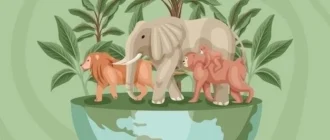
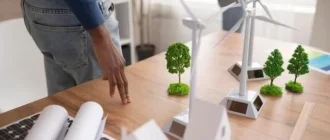
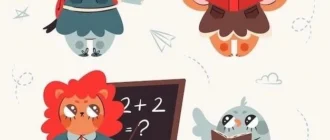
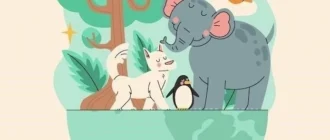

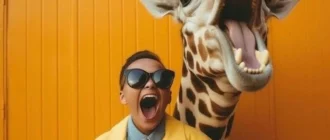
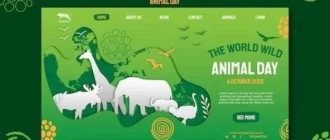

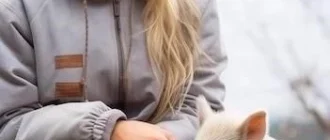
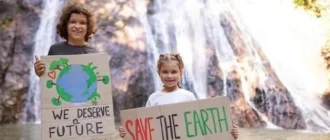
The author\
I appreciate the author\
I had no idea that the way we raise animals for food could have such a significant impact on the environment. This article is a real eye-opener.
Learning about the closed-loop system of composting and using manure as fertilizer was fascinating! It\
I never thought about the link between animal agriculture and food security before. It\
The concept of a closed-loop system in sustainable farming is fascinating. It\
The environmental impact of conventional animal agriculture is undeniable. We need to support policies and practices that promote sustainability.
The concept of crop diversification resonated with me. It makes so much sense to create a more resilient ecosystem by growing a variety of plants and reducing reliance on external inputs.
As a city dweller, I had no idea how much work goes into sustainable farming. It\
The connection between our food choices and the health of the planet is undeniable. We all have a role to play in creating a more sustainable future.
This article has given me a lot to think about. It\
The idea of pasture-raised animals having a more natural and humane lifestyle is appealing. It makes sense that happier animals would produce better quality food.
The images of factory farms are heartbreaking. It\
The fact that factory farming is a major contributor to greenhouse gas emissions is alarming. We need to find more sustainable ways to feed the growing population.
The article does a great job of explaining complex concepts in a clear and understandable way.
The connection between animal welfare and environmental sustainability is clear. When we treat animals better, we also treat our planet better.
I recently visited a local farm that follows sustainable practices, and I was amazed by the difference! The animals were visibly healthier and happier, and the farm itself felt more alive and in balance with nature.
This article has inspired me to learn more about where my food comes from and to support local farmers who prioritize sustainability.